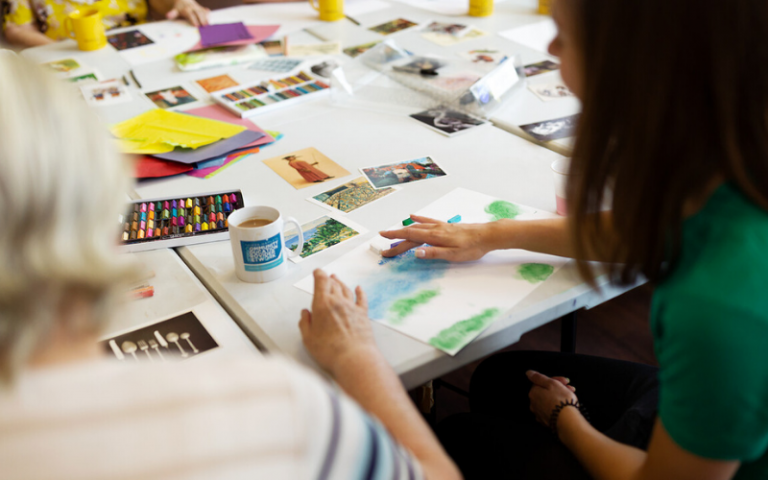The power of volunteering
13 January 2021
UCL PhD student Lavanya Mane has been volunteering for several years to support members of UCL’s local community. Read about how her volunteering has been rewarding and beneficial for her mental health.

The toll of a PhD
When I first moved to London to start a PhD 4 years ago, I was brimming with excitement for the endless possibility of this big, beautiful city. About a year in, I had experienced some amazing things and met some wonderful people, but I also struggled with impostor syndrome and a deeply isolating anxiety around the pressures of doing a PhD.
It was around this time that the UCL Volunteering Fair was taking place. Having volunteered before, I already knew that supporting others with my time and skills was personally extremely rewarding. Besides, connecting with people and thinking beyond ourselves is a huge perspective-shifter.
Tackling loneliness with North London Cares
On the UCL Volunteering directory, I came across North London Cares. They have a simple strategy towards a lofty aim – connecting older and younger neighbours to create a community network to tackle loneliness. I signed up, and after an induction, attended my first ‘social club’.
One of their core programmes, social clubs are events organised for younger and older members to come together and hang out. It was amazing to interact with a demographic that I had not encountered in my daily life as a student at all – older people with a lifetime’s worth of stories, from having lived in the same King’s Cross neighbourhood since it was an industrial goods yard, to performing in a band at the Roundhouse Theatre and travelling the world as a renowned chef!
I liked that there was no minimum time commitment with NLC. I could make time around the demanding and unpredictable world of PhD research, because there were numerous social clubs organised every month. In the current pandemic situation, there are still plenty of ways to connect with older neighbours through the online- and phone-based social clubs NLC organise.
Building stronger communities
I also volunteer with NLC’s Love Your Neighbour programme, which connects one younger person with an older individual who may not be able to attend social clubs due to health or other issues. Through a matching process over 2 years ago, I met Rita, and our friendship continues to be a source of comfort and joy to us both.
Rita lives around the corner from where I work (a purposeful prioritisation from NLC!), so I would drop by to visit her 3-4 times a month. Due to her limited mobility, we mostly chatted, laughed and swapped experiences. We talked about dating, homesickness, families, memes, work, travels, and all the things a deep friendship is built on.
Although we haven’t seen each other in a few months due to the COVID-19 pandemic, we write to each other and speak on the phone regularly. Staying connected and reaching out to the most vulnerable people in our communities is more important now than ever before.
As I near the end of a tumultuous PhD, I have had bouts of depression and anxiety, but speaking with Rita or dialling into a social club always leaves me feeling more grateful and capable. Because I have realised that sometimes, volunteering can be about more than helping others; it can also be about helping yourself.
Sign up to attend the Digital New Year Volunteering Fair on Wednesday 20 January.
Find out about Volunteering opportunities through Students’ Union UCL.
 Close
Close

